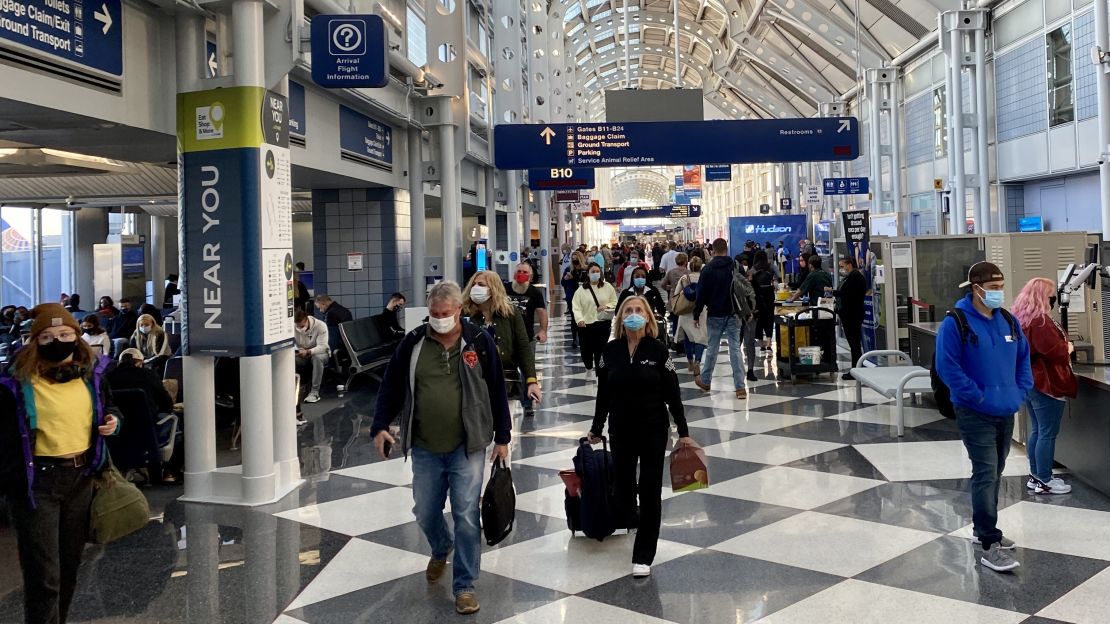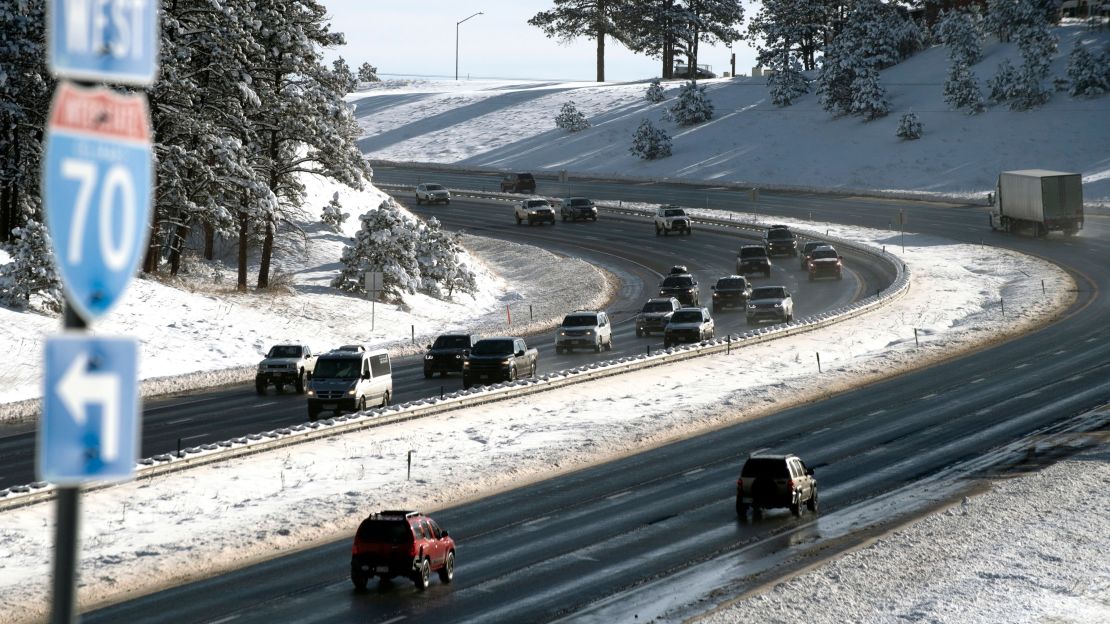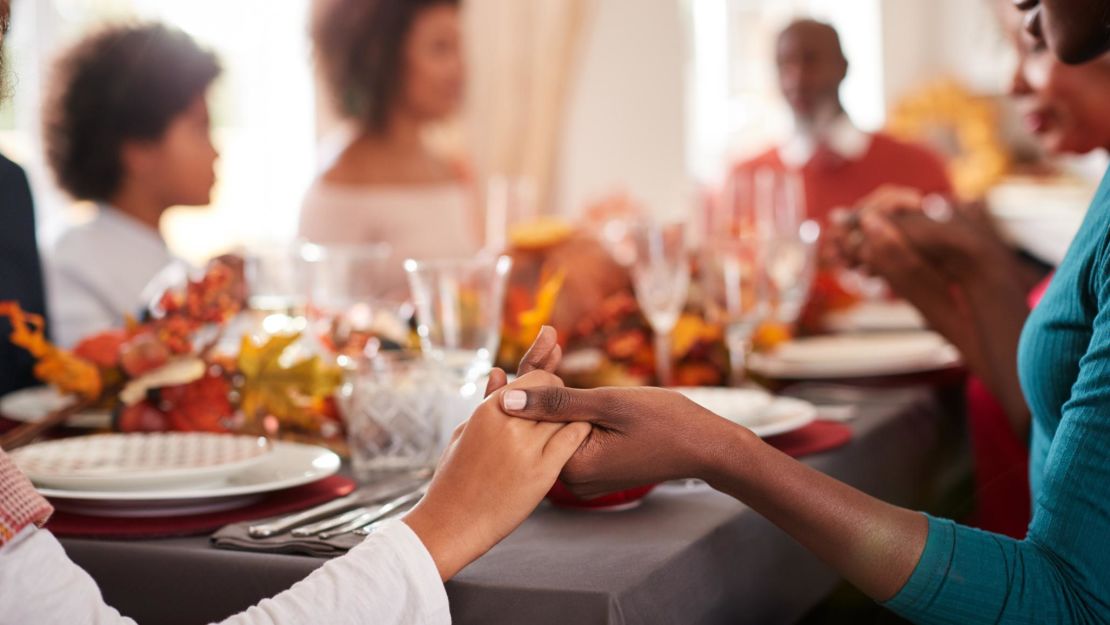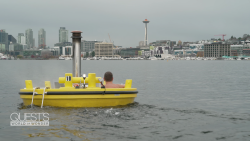The end of the year is fast approaching, and people are weighing travel plans to join friends and family for the holidays against the backdrop of a surge of the Covid-19 pandemic.
Gathering with others – probably the most universal holiday tradition – has never required so much meticulous forethought.
Should you travel for the holidays in 2020? What precautions will make it safer? Who will be there and how careful have they been?
CNN spoke with medical experts about holiday travel risks and when you really should skip it altogether.
Should you travel for the holidays this year?
Health and government officials are increasingly urging people to stay home and avoid nonessential travel.
The US Centers for Disease Control and Prevention urged Americans to skip Thanksgiving travel this year and followed up with the same guidance for the December holidays.

“For the first time in more than 30 years, I’m not spending the Christmas holidays with my daughters,” Dr. Anthony Fauci, director of the National Institute of Allergy and Infectious Diseases, recently told CBS’ Norah O’Donnell.
He noted that even modest gatherings of family and friends are driving the coronavirus surge.
“We’re starting to see infections that are emerging from what otherwise seem like benign settings,” he said.
Fauci said he’s even more concerned about the spread of Covid-19 over Christmas than he was over Thanksgiving. He noted that people often begin to gather a few days before Christmas and continue to celebrate through New Year’s.
“That extends that vulnerable period by two or three times what you do in Thanksgiving,” he said.
Staying home is the safest bet, the CDC says. If you do decide to travel, the CDC has created travel risk guidelines that break down components of travel from transportation to lodging and personal contact, rating choices from “lowest risk” to “highest risk.”
Pay close attention to the case counts in your destination, the CDC advises. The risk of infection increases in areas with high community transmission.
“If you do choose to travel, try to keep gatherings small and take precautions,” such as wearing a mask and practicing social distancing and good hand hygiene, said Dr. Henry Wu, director of Emory TravelWell Center and associate professor of infectious diseases at Emory University School of Medicine in Atlanta.
Who should skip it?
People who are especially vulnerable to severe Covid-19 illness are safest staying home.
“Are you older, are you frail, do you have chronic underlying illnesses?” are the questions to ask, says Dr. William Schaffner, an infectious diseases specialist at Vanderbilt University Medical Center in Nashville, Tennessee.
People who are considering meeting up with vulnerable relatives or friends should really weigh the implications of introducing illness to them, Wu said.
“There are well-documented Covid-19 clusters associated with family gatherings, including ones that resulted in deaths.”

Does testing provide protection?
Testing can help catch coronavirus infections before travel, Wu said,”but testing is not foolproof.”
“It can be falsely negative, or just miss infections you are still incubating,” he said. “You could certainly also get infected during travel and potentially infect others after that.”
Testing can offer “a level of reassurance if the people who are attending are negative at the time they were tested,” Schaffner said. “You still have to be cautious.”
Would a vaccine make travel safe?
Even if a vaccine were widely available in time for the holidays, it would likely provide partial protection much like the flu vaccine, says Schaffner. It’s not a “suit of armor,” he says, and the other standard precautions would still apply.
A vaccine from Pfizer received emergency approval in the US for emergency use on Friday and government officials are working on complex distribution plans for it.
Many Americans won’t have access to vaccines until sometime next year.
What’s the safest way to get there?
Driving generally allows travelers more control of their interactions with other people than flying or other forms of communal transportation, the experts say.
The CDC rates “short trips by car with members of your household with no stops along the way” in its “lowest risk” category, next to staying home.
Minimizing contact when you get out of the car is key, Schaffner says. Mask up when you’re outside the vehicle, make your stops few and brief and opt for drive-thru food over going inside a restaurant.
With air travel, “you’re more at the mercy of what’s happening around you,” Schaffner said. Still, wearing masks, good hand hygiene and maintaining as much social distance as possible is important.
Flights with layovers are rated “highest risk” by the CDC.

Should you stay with family?
Staying in a rental house or cabin with your immediate household is a lower risk than staying in hotels or someone else’s home, according to the CDC’s risk assessment.
Schaffner sees hotels as offering more control of your environment than staying in a relative’s home, provided you avoid close encounters in elevators and other public areas and skip restaurant dining in favor of takeout or room service.
Whether you choose to stay in someone’s home “has a lot to do with who’s the relative and how careful have they been,” Schaffner said.
Anytime you’re gathering in close contact with friends or relatives, it’s important to discuss these things in detail beforehand: Is anyone at elevated risk for severe disease? What kinds of precautions and risks are guests and hosts taking day to day?
Schaffner knows people who have stayed in the homes of friends or relatives after carefully quarantining for two weeks before visiting or receiving guests. That’s the kind of safety measure that’s good to agree upon in advance.
Wu doesn’t have a strict answer on whether staying with friends and family or in a hotel is safer. A number of factors come into play, he says, including your ability to safely distance. For stays in the same house with other people, “consider if the family you are visiting has been able to isolate and take precautions,” he says.

Can you safely gather with people outside your household?
Even if you do stay in a hotel or rental home, chances are good that you’ll want to gather with other households to celebrate the holiday season.
Schaffner has been to relatives’ homes during the pandemic and they’ve been to his, but they’ve stayed far apart and worn masks and only stayed together for a couple of hours, he says.
Food is served, but they sit at the far ends of the dining room table and take their masks off only to eat and drink.
“It is prudent to keep the mask on during a family gathering, especially if indoors and you (or others) have risk factors for severe illness,” Wu said.
Small, outdoor, socially distanced gatherings are safest. If you gather inside, choose an open, well-ventilated space.
“Large groups, especially if coming from different households or geographic locations, could increase the risk of infection,” Wu said.
The very safest option? “Get a small turkey and stay at home,” Schaffner says.
CNN’s Lauren Mascarenhas, Jenn Selva, Paula Newton and Jen Christensen contributed to this report. This story was updated in mid-December.




















